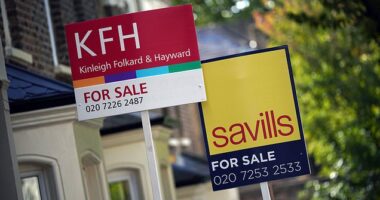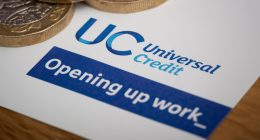FINANCIAL help that was due to end has now been extended as England enters a second lockdown.
Furlough and breaks on making mortgage and credit card repayments are among the support schemes made available at the height of the coronavirus crisis and were set to finish on 31 October.
But with lockdown set to impact millions of peoples finances, many of these schemes will continue to offer support to anyone struggling financially.
Here, we’ve rounded up the support you’ll find going forward and how long it’s expected to last.
1. Furlough
What is it?
Money from the government covers the wages of people who can’t work because of coronavirus.
Furloughed workers will be paid 80% of their salary up to £2,500.
What’s changed?
Furlough was meant to end on 31 October but it will now run through November.
Previously, employers had to cover some of the wages but they won’t in the latest version of furlough, although they do have to cover National Insurance and pension contributions.
What next?
The Job Support Scheme, which supports the wages of those who can work but are doing fewer hours, had been scheduled to replace furlough in November.
Now, it will be pushed back and the furlough extension is expected to end on 2 December with the end of lockdown.
However, like with the original end date of 31 October, any changes to lockdown and coronavirus infection rates could change that.
Get the full details of the extended furlough scheme, including eligibility.
2. Self-employed grant
What is it?
For the self-employed there have been grants that mean they receive money form the government when they’ve lost work because of Covid.
The next grant is due to cover November through to January and will now be worth up to £5,160.
It can be claimed from 30 November.
What’s changed?
The grant has been doubled for November to 80%, up from 40% of profits with a maximum of £3,750 which was first promised by the government in October.
It will remain 40% of profits up to £3,750 for December and January.
What next?
There’s a further grant coming that will cover the months February to April but an amount for that has not been set.
Find out more about the self-employment income support scheme (SEISS) and how to claim.
3. Mortgage payment holidays
What is it?
Anyone who has a mortgage can apply for a payment break of up to 6 months if they are struggling financially.
Its temporary and you still have to repay what you owe.
This could mean paying back more in the long term because interest still builds up, or that you pay it back over a longer period.
But it gives many people a breather and these payment holidays will not have a negative affect on your credit file.
What’s changed?
A blanket offering of payment holidays was due to end on 31 October.
Support would still have been offered by lenders after this date but it would be tailored to people’s on a case-by-case basis and could have affected credit scores.
Instead, this blanket approach will continue.
What’s next?
Anyone who is financial difficulty should contact their lender and other support may be available too – never just stop paying your mortgage.
Anyone who hasn’t previously taken a break can ask to, while those who have taken a break previously of 3 months can ask for a further three-month break.
Anyone who has already taken a break of 6 months will not be eligible but will find other support from their lender.
The deadline for asking for a break is 31 January 2021.
Here’s what you need to know about the new mortgage holidays.
How to apply for a payment holiday or help with your overdraft
HERE are the help pages for all the major banks so you can see what help you may be eligible for – and how to apply for it.
Credit card holidays
Loan repayment holidays
4. Credit card and debt repayment breaks
What is it?
People with loans, credit cards and other types of credit can take payment breaks to ease the pressure on their finances caused by coronavirus.
That includes:
- credit cards
- car finance
- personal loans
- stores and catalogue cards
- buy-now-pay-later schemes
- rent-to-own policies
- payday loans
Anyone who hasn’t paused payments previously will be able to ask for a break of up to six months.
What’s changed?
Payment breaks had been due to end on 31 October and be replaced with more tailored support from lenders, which could have included a break but might have included other support.
Instead, the blanket availability of breaks will continue because of the second lockdown.
But while a payment break won’t be logged as a missed payment on credit files, lenders may take a break into account when making lending decisions in future.
What’s next?
Anyone can apply for a break until 31 January 2021.
Your lender should explain the implications of taking a break which can mean you pay more in the long term because interest still builds up.
Find out more about taking a break from repayments.
5. Home repossessions ban
What is it?
There’s a ban on home repossessions which will last until 31 January 2021.
This means anyone struggling financially won’t be at risk of losing their home during the lockdown or over the winter.
What’s changed?
There’s been a ban on home repossessions since the height of the pandemic.
It had been due to end on 31 October but the financial regulator has decided to extend it due to the second lockdown.
What next?
Anyone struggling with arrears or repossession, now or in the future, should contact their lender as soon as they can.
Charity Shelter also has resources to help if you find yourself in this situation.
Financial help if you’re struggling
If you find yourself struggling financially because you’re self-isolating are in a local lockdown, or any reason related to the coronavirus or not, there’s always help available.
Contact your bank or lender in the first instance if you’re struggling to keep up with repayments.
You’ll also find support and advice from the following organisations for free:
6. Universal credit
What is it?
Anyone who’s self-employed and claiming Universal Credit will be exempt from the minimum income floor.
It means that when their income changes from one week to the next they will still get the UC benefits they are entitled to.
What’s changed?
The minimum income floor was suspended at the height of the pandemic and had been due to be reinstated from 12 November.
But now the government has said it will extend the suspension until the end of April next year.
What’s next?
Universal Credit isn’t just for the unemployed – those in work but on a low wage can be eligible too, including the self-employed.
It’s estimated low paid workers are missing out on up to £21,000 a year.
Martin Lewis has reminded bosses they can rehire staff if they’ve recently been made redundant to put them on furlough.
We explain what lockdown means for garages and MOTs.
Gyms and other fitness centres will close, even though they were the last to reopen after the previous lockdown lifted.
This post first appeared on thesun.co.uk
















